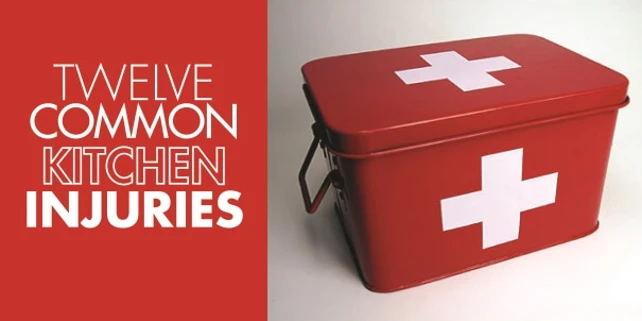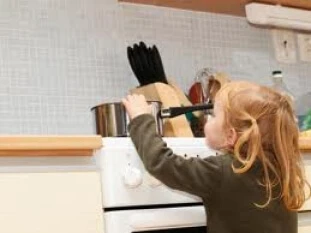12 Common Kitchen Injuries

It’s a great day at Mr. Appliance®, unless a spill on the floor or an oven-rack burns occurs. In a matter of minutes your heart of the home can turn into the most dangerous room in the house. Stay safe this spring with 12 common kitchen injuries from NursingSchools.net. 
- Pepper burns: Hot peppers can burn your skin, and anything else you touch, including your eyes. Be sure to wear gloves.
- Clean up spills: Spills on the floor can lead to accidents. Prevent these injuries by cleaning up spills as you go.
- Oven burns: Your oven heats dishes up to hundreds of degrees, so it’s important that you’re careful not to burn yourself. Brushing the side of the oven, or touching something that’s too fresh out of the oven can burn. Be careful when working around the oven, and give dishes time to cool before touching them.
- Chemicals in cabinets: Small children and pets can be injured or killed by hazardous chemicals kept in your kitchen. Use cabinet locks to be sure that they can’t get in.
- Refrigerator falls: Stay organized and do not overly stocked in your refrigerator, pantry and cupboards. otherwise, objects like heavy jars may fall when the door is opened.
- Cutting bagels: Many people cut themselves while trying to slice a bagel. You should cut bagels using a table and cut through on its side. Keep a hand flat on top of the bagel to hold it down.
- Falls: Using a chair with wheels, cardboard boxes or other unstable surfaces to reach higher spaces can lead to falls. Always use a stepladder to reach things up high.
- Opened cans: Opened cans leave sharp lid edges that can cut. Use a mechanical can opener that has a magnet to hold the lid instead of trying to handle it.
- Cutting board slips: Even if you’ve got steady hands, you can slip and accidentally cut or chop yourself. Always cut on a non-slip surface, or place a damp towel under your cutting board to prevent shifts.
- Fire: Kitchen fires are common and dangerous. Turn pot handles inward, move flammable materials and stay close when cooking flammables like oil and fat.
- Utensil drawer cuts: Place all sharp items away from the front of the drawer, and facing toward the back so that you don’t accidentally grab a sharp edge.
- Contamination: Dirty sponges, not washing cutting boards and more can contaminate your food. Always be sure to use proper handling in the kitchen to avoid food contamination.


